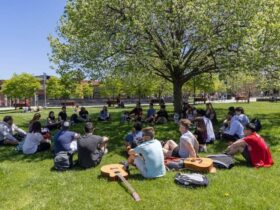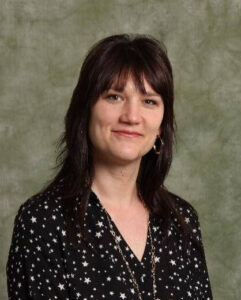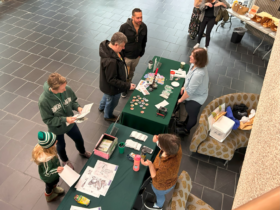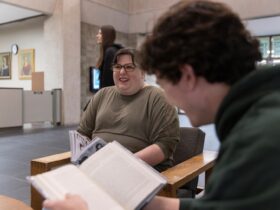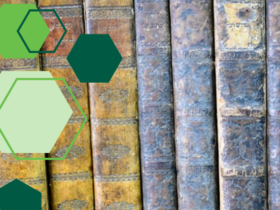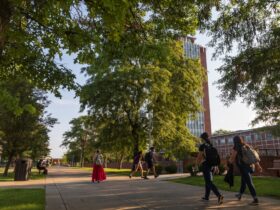The Binghamton University Libraries strive to support the curiosity surrounding every wave of progress in the world of scholarship. In anticipation of the need for faculty and student support in this educational realm, Amy E. Gay was added to the Digital Initiatives and Resource Discovery team as librarian for digital scholarship in 2018. Since then, instructional sessions, events and consultations centered around the distinct academic activities that define digital scholarship and digital humanities have grown from concept to reality.
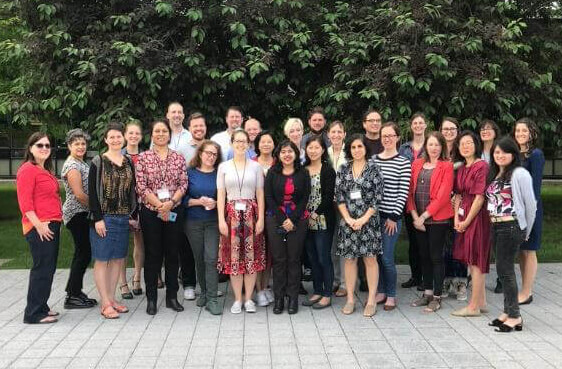
One particular achievement was the successful Digital Humanities Research Institute (DHRI) that took place in May 2019. Co-organized by Gay and Nancy Um, professor of art history and associate dean of Harpur College, the four-day intensive seminar brought together 17 scholars. The DHRI website states, “The daily program balanced lectures, hands-on workshops and small group breakout sessions focused on specific issues. Topics included foundational skills such as the command line, Python, HTML and CSS, as well as platforms and tools including Tableau, ArcGIS online, AntConc and Scalar.”
With its “open” sign fully lit for digital scholars, the Libraries have since created a temporary lab space. Located in the Science Library, the digitization lab has capacity for up to 30 instructors, students or researchers. Together, scholars can delve into topics such as virtual reality, open access and digital preservation.
A handful of scholars who have taken part in the Libraries’ related services inside and outside of the lab were asked how digital tools affect their approach to work and which elements impact them in the greatest manner:
My site is www.documentingjudeospanish.com and it is a digital humanities project to collect, digitize, and decipher — through transcription and translation — the Hebrew-based cursive writings of the endangered Judeo-Spanish language of Sephardic Jews,” says Bryan Kirschen, assistant professor of Spanish linguistics at Binghamton.
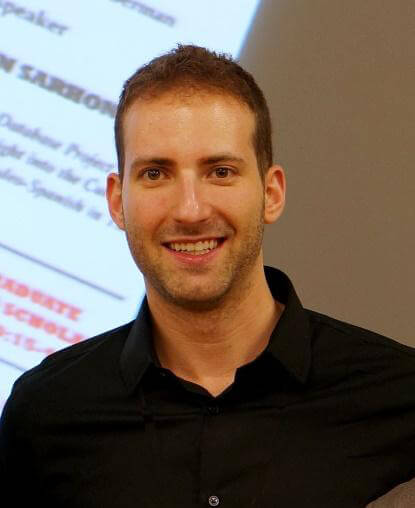
“Last year I participated in the Digital Humanities Research Institute (DHRI) here at Binghamton. The DHRI provided participants with a panoply of resources to “go digital” and bring our work outside Binghamton. Using digital tools has allowed me to share my research with scholars and students interested in Judeo-Spanish as well as communities to which this language pertains.
“Throughout this project, digital publishing has been an integral component. This project relies heavily on text analysis though. On the one hand, this is a project of paleography and, on the other, one of analyzing the unique ways Spanish and Hebrew (as well as other languages) come into contact with each other.
“Documenting Judeo-Spanish is an online portal that allows users to view a variety of documents written in a nearly-extinct Hebrew-based cursive alphabet known as Solitreo. Users can hover over and click words to reveal Roman-character transcriptions of text and English translations. At the same time, users can also view complete transcripts and translations of documents. We have also developed a Solitreo font, which will allow users to utilize this alphabet across digital platforms.”
Happily, the Libraries do not have to look further than the Bartle Library third-floor renovation project for an opportunity to add a permanent Digital Scholarship Center to its complement of services. The new center is planned as a focal point of the redesign that is expected to open in 2024. The yet-to-be named center will be large enough to host twice as many individual attendees as the current temporary space at the Science Library and it will provide the added benefit of optional modular partitions that will allow for several groups to work at one time on different areas of study.
Contact Digital Scholarship Librarian Amy Gay for more information on this topic at aegay@binghamton.edu.


